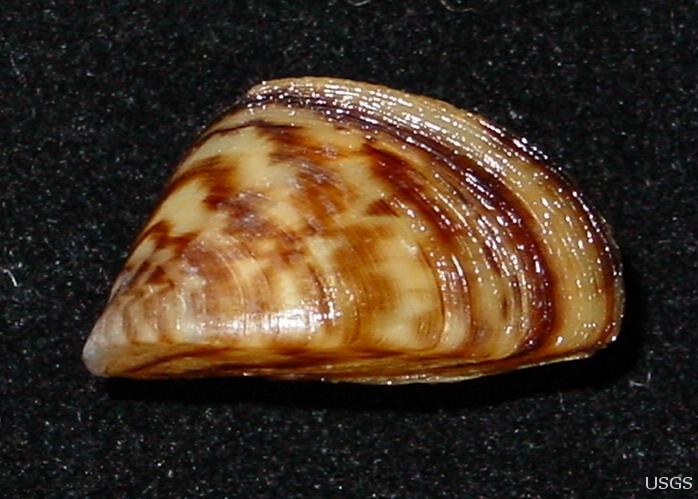[Updated 2019-08-12 : Lake Travis, Lake Austin, Lady Bird Lake, Lake Georgetown, and Canton Lake are now classified as ‘infested.’ Decker Lake (aka Lake Walter E. Long) and Grapevine Lake are classified as ‘positive.’ Lake Ray Hubbard is still classified as ‘suspect.’]
I heard this sad news on our local NPR affiliate, KUT 90.5 FM, yesterday. Texas paddlers should be aware that an invasive pest species, the Zebra mussel (Dreissena polymorpha) has become established in Lake Travis (now classified as ‘infested’).

Our sister club, Hoewa’a Dallas OCC, should be aware that Lake Ray Hubbard is classified as ‘suspect’ since Zebra mussel adults and larvae have been observed in recent years. All boaters – including canoeists and kayakers – are required to drain all water from their boat and onboard receptacles before leaving or approaching a body of fresh water in order to prevent the transfer of zebra mussels.
Further recommendations for reducing the likelihood that these pests reach Lake Austin, Lake Travis, etc. can be found at Texas Invasives.
The zebra mussel was accidentally introduced into the Great Lakes from the Caspian Sea via transport shipping in 1986. Click to see how rapidly the zebra mussel has spread from the Great Lakes since then through freshwater waterways.